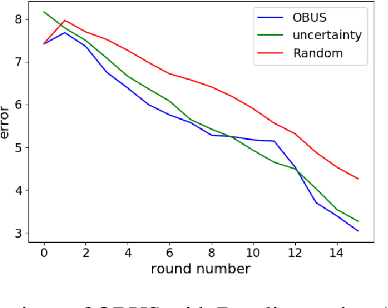Let Me At Least Learn What You Really Like: Dealing With Noisy Humans When Learning Preferences
Paper and Code
Feb 15, 2020



Learning the preferences of a human improves the quality of the interaction with the human. The number of queries available to learn preferences maybe limited especially when interacting with a human, and so active learning is a must. One approach to active learning is to use uncertainty sampling to decide the informativeness of a query. In this paper, we propose a modification to uncertainty sampling which uses the expected output value to help speed up learning of preferences. We compare our approach with the uncertainty sampling baseline, as well as conduct an ablation study to test the validity of each component of our approach.
* 7 pages
 Add to Chrome
Add to Chrome Add to Firefox
Add to Firefox Add to Edge
Add to Edge